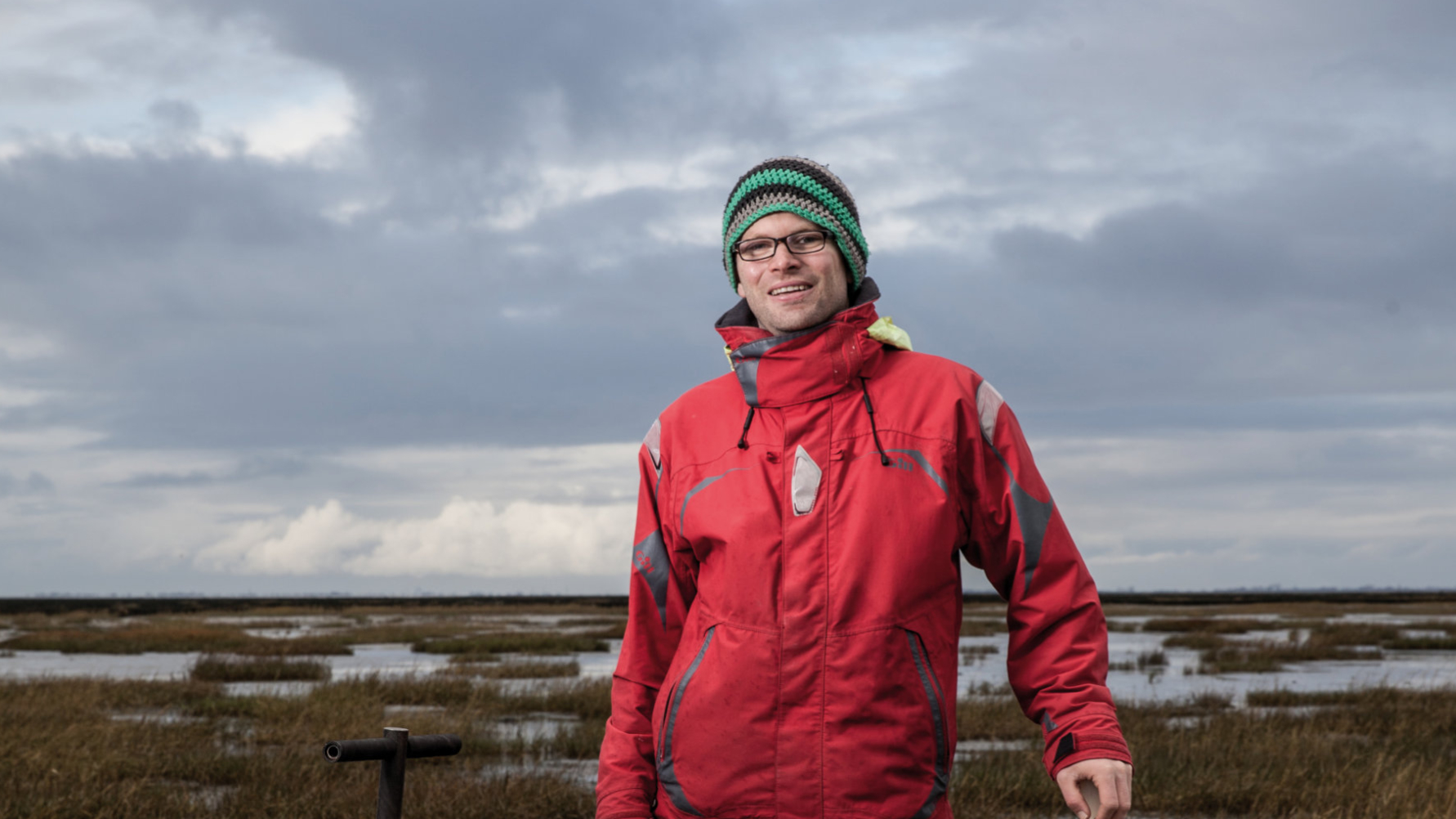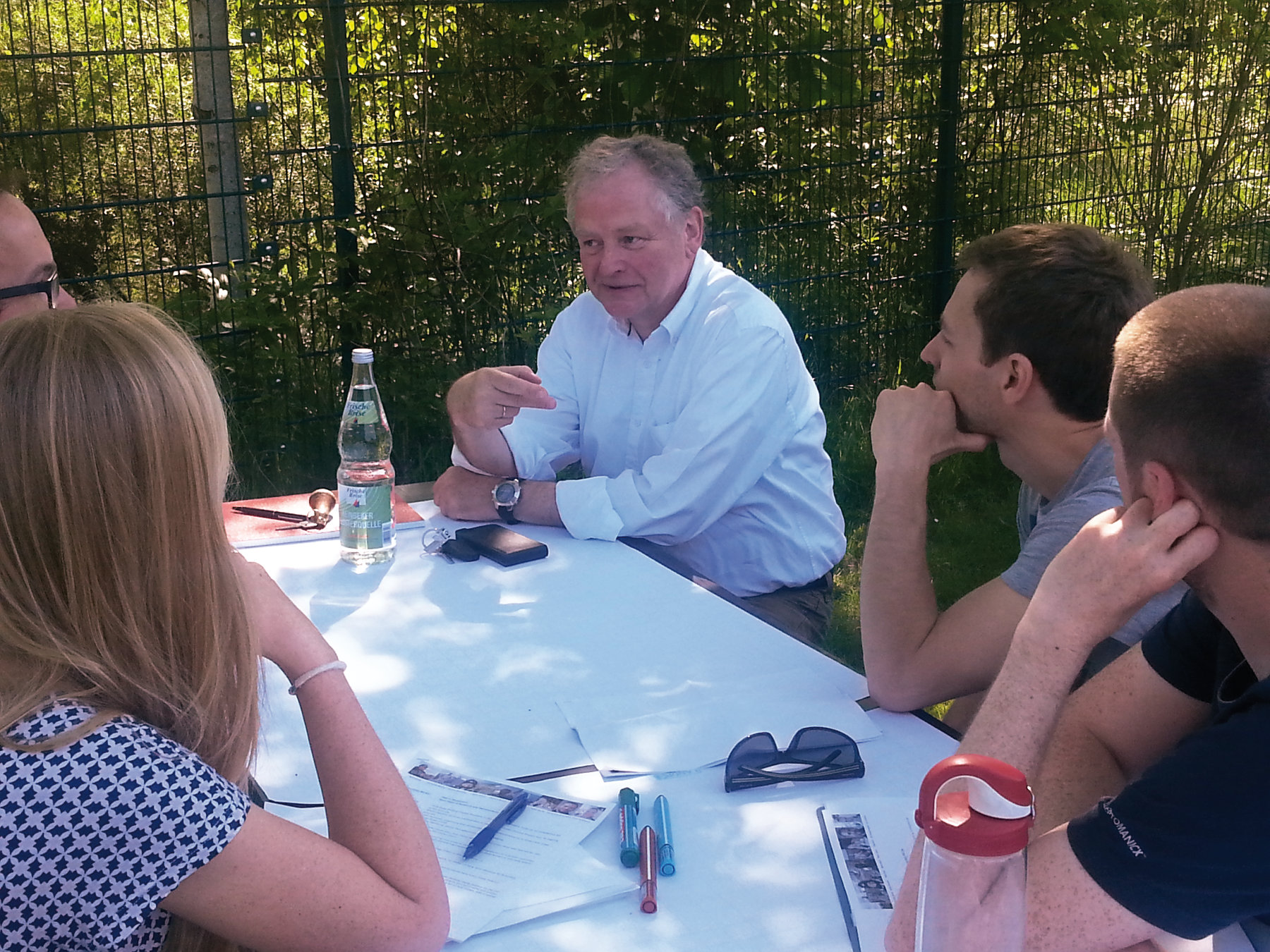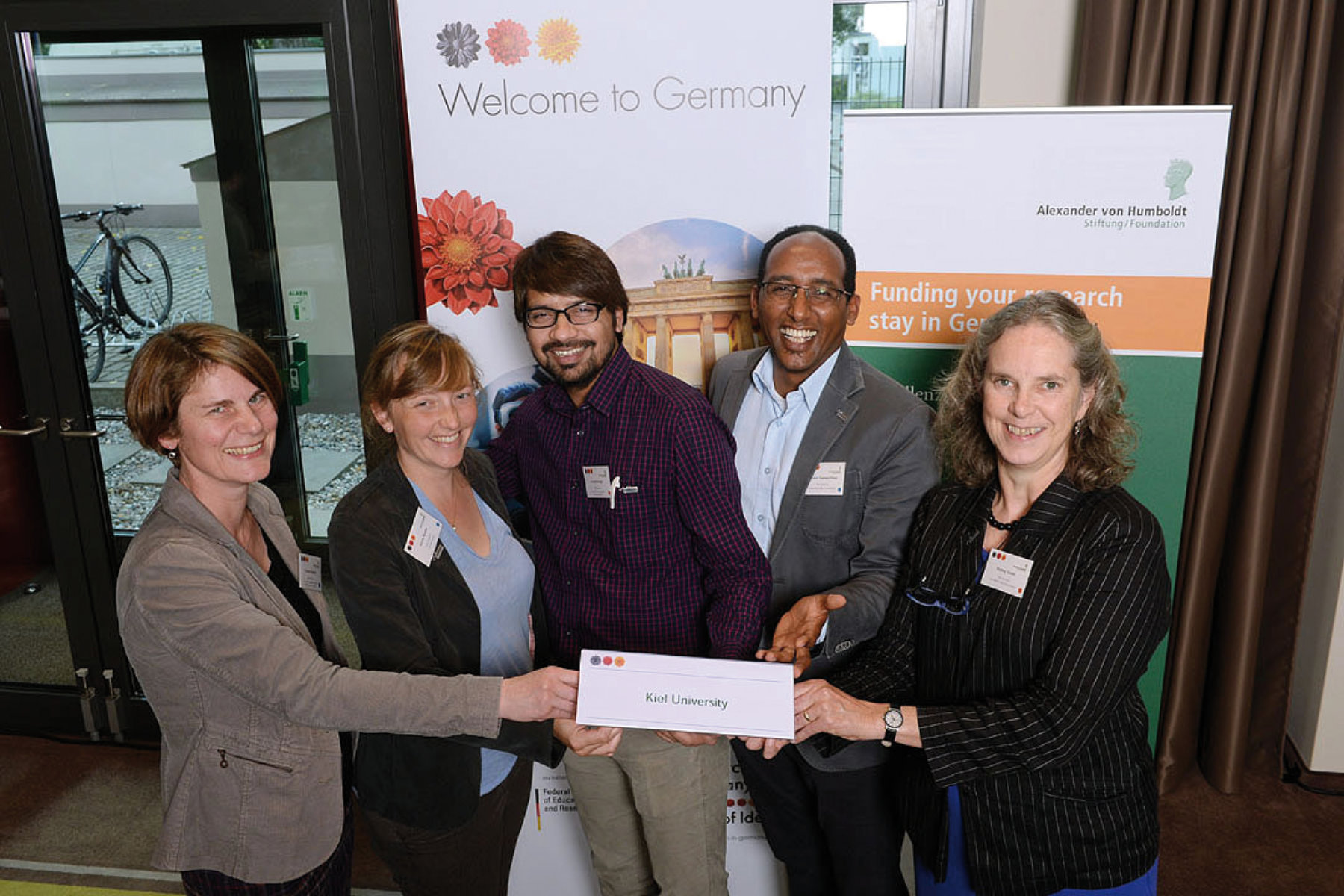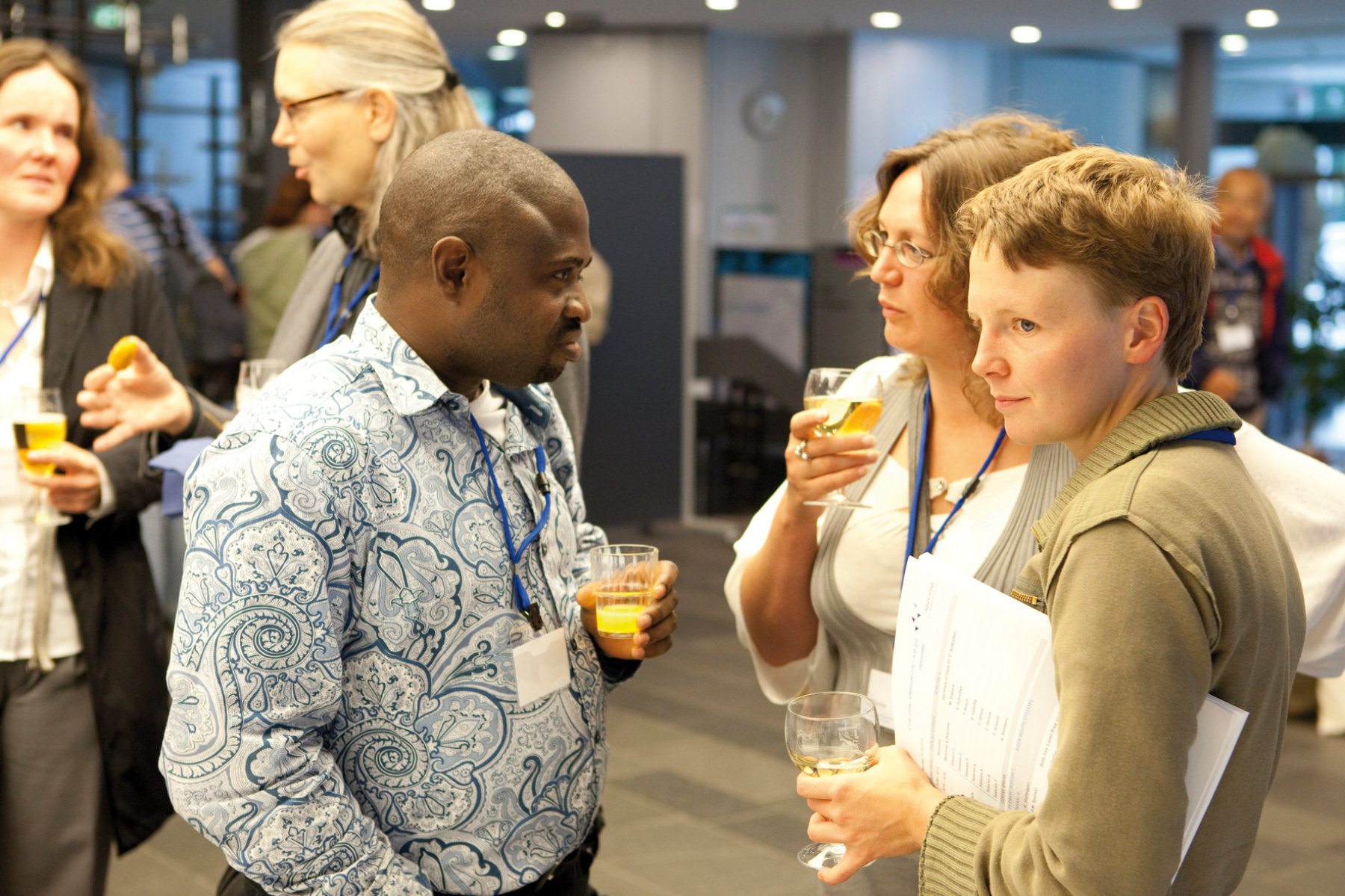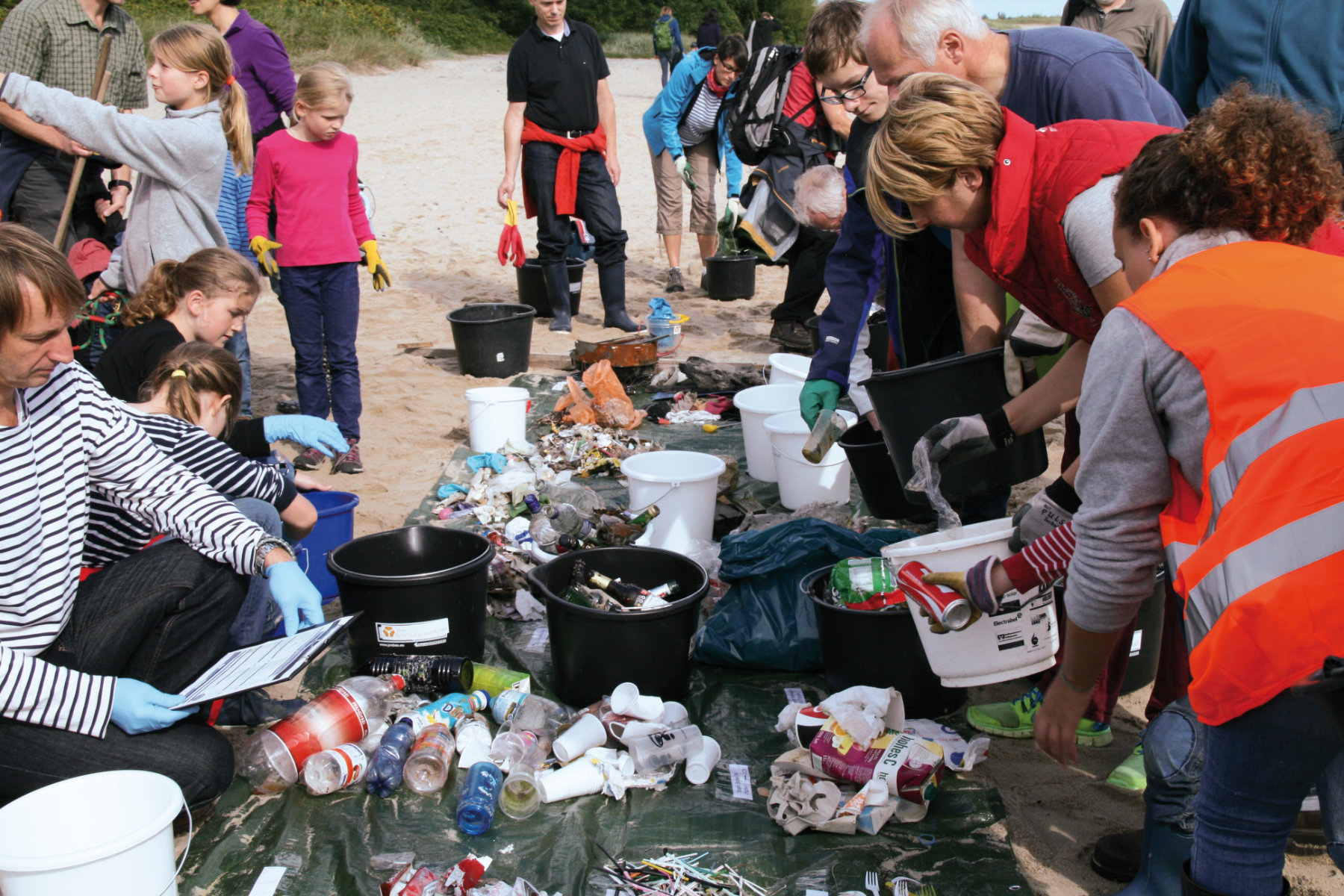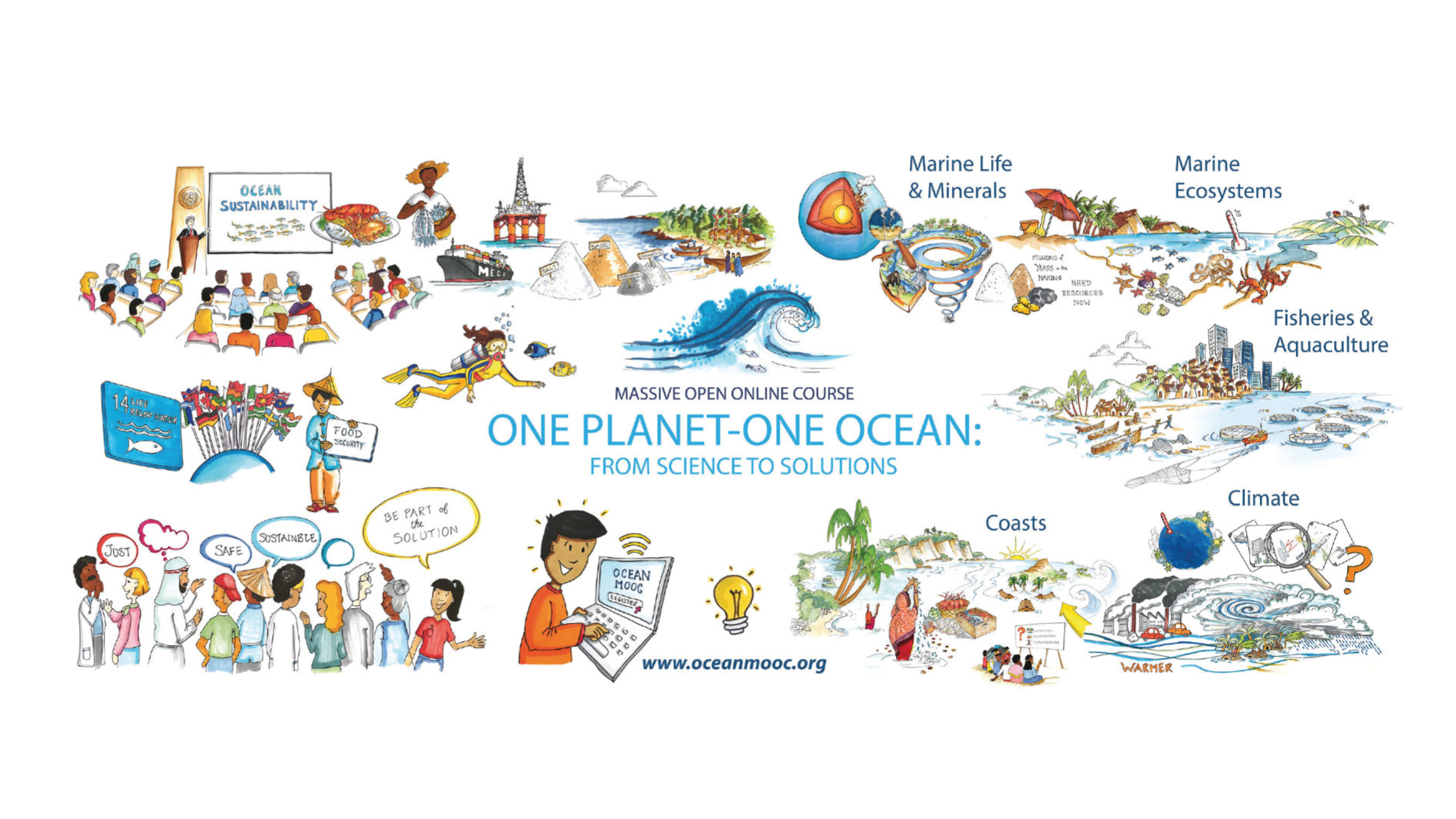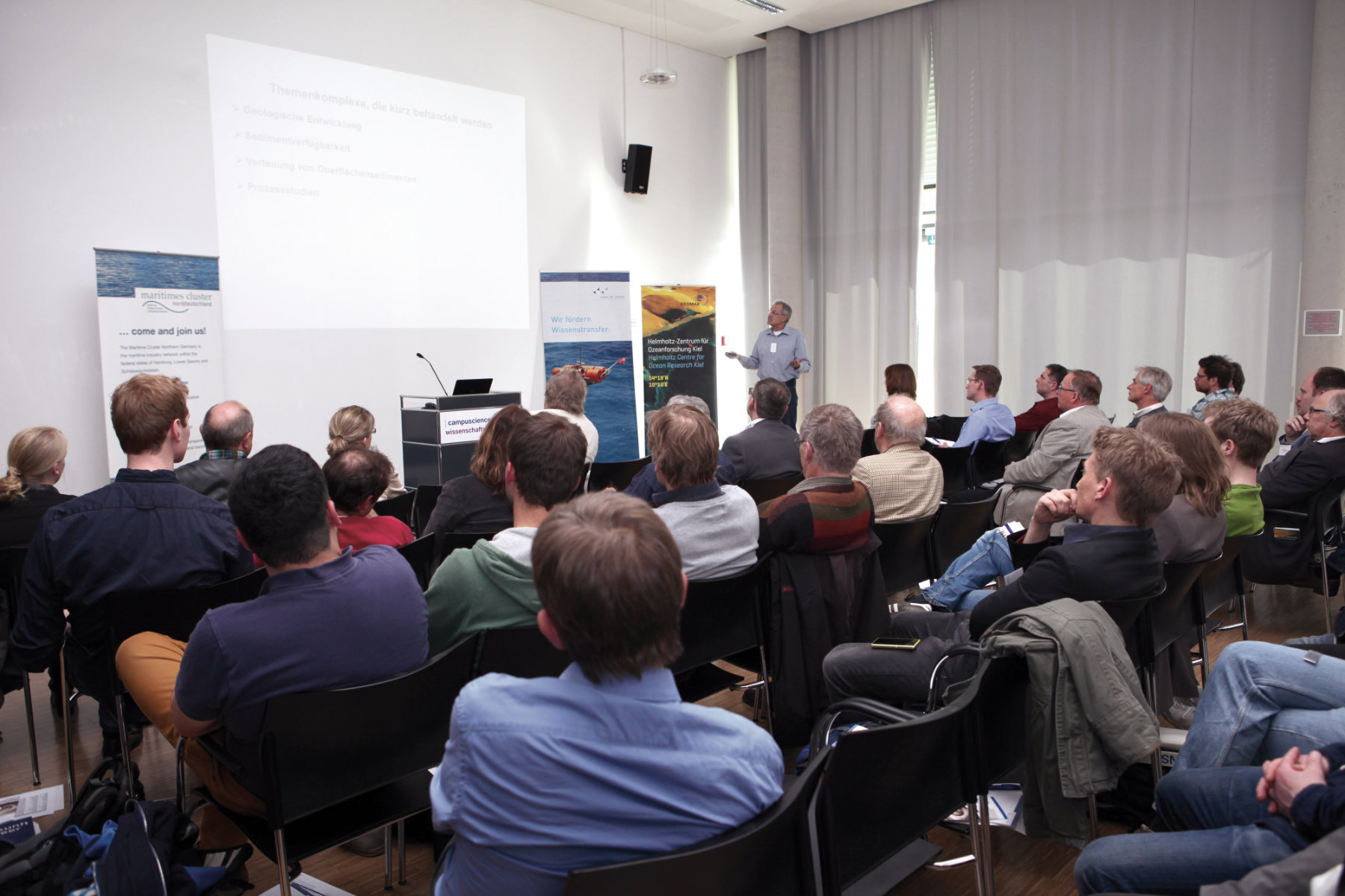Aside from the intense topic-related collaborations, as well as the intense topic-related collaborations it generates, I have always benefitted from both the Ph.D. and the postdoc networks within The Future Ocean. Most recently, I have enjoyed participating in the wide range of courses offered within the IMAP postdoc network, but also the opportunity to get in touch with postdocs from different disciplines working in the same field.
Pursuing a career in science is a challenging endeavour. It requires a multitude of skills: subject competence; vision and creativity in developing new research questions; perseverance and determination; writing skills to produce high-impact publications and research proposals; presentation skills to convince colleagues at workshops and conferences; an understanding of how to interact with stakeholders, and possibly the public as a whole – and last but not least, the ability to talk to potential employers.
The Kiel Future Ocean Cluster recognises the importance of developing its scientific talent, and in particular the need for researchers in all fields to start building a professional network. Future Ocean's early career initiatives, the Integrated School of Ocean Sciences (ISOS) for doctoral candidates and the Integrated Marine Postdoc Network (IMAP) for young postdocs, strive to do exactly that: empower early career scientists to develop their skills by providing scientific mentorship and learning opportunities, in a network of peers where young academics can learn from each other and discuss the challenges of career tracks in research and beyond.
ISOS - inspiring research and careers
Kiel's unique approach to the integrated ocean sciences means that our masters students and our doctoral and postdoctoral researchers become exceptionally valuable members of the research community and of the ocean community as a whole. Their career development is supported by a huge array of courses and events designed to inform and inspire them on academic topics and the wider implications of their work.
the Isos Mission
The doctoral programme ISOS, Integrated School of Ocean Sciences, focuses on interdisciplinary education outside of curricular courses. It offers supplementary training, a framework of supervision, mentoring and mobility for doctoral candidates. At ISOS, doctoral candidates sharpen their scientific profile and are challenged to think beyond their discipline and to equip themselves for life after a doctorate.
Avan Antia, Head of the ISOS doctoral programme, describes it as "an inclusive model of doctoral education that supports three pillars of our community – doctoral candidates from all faculties at Kiel University, professors and supervisors, and the institutions that host the research projects."
The ISOS program is designed to support doctoral candidates and their supervisors alike. It unites candidates from all the natural science disciplines, law, economics, ethics, art and many other subjects. Here, early-stage researchers are challenged to see their research in a wider context that includes complex problem-framing in a multidisciplinary environment. The programme takes a holistic view of research-based education, involving partners from academia, industry, politics and NGOs, and bringing in ad hoc expertise where required. An active alumni network provides input to the programme, especially in supporting career perspectives beyond the doctorate.
Martin Visbeck, speaker of the Future Ocean, says: "Doctoral research is a pillar of scientific innovation. It generates an immense volume of data and scientific papers, and fuels further research. At the same time, it is the first step towards independent research for hundreds of young people who make the transition from student to research scientist. This process generates new knowledge, but it also creates a pool of people who are empowered to seek their professional direction within academia, or in a wide variety of jobs in industry, organisations and society at large. ISOS is a must-have for doctoral candidates and their advisors."
Avan Antia adds: "Kiel offers a world-class research environment that bristles with the excitement of bridging hard-core scientific findings to societal needs, and deploying them in real-life challenges. Our doctoral programme enables early-career researchers to use their personal talents to produce better scientific outputs, and to consider how best to transition into their next stage as a professional. This means going beyond academic excellence to include all-round personal and intellectual growth."
To achieve this, a network of partners from universities and from industry, policy, NGOs and elsewhere give perspectives and context to academic research, in regular "from PhD to.." and "Meet the Expert" seminar series. ISOS creates a banquet of opportunities for doctoral candidates to start their own research projects, gain international exposure, moderate discussions and shape their own programme through their own initiative.
The existence of ISOS allows the Cluster to be better-informed about the doctoral phase of a scientific career, including funding, supervision and institutional support. This helps the Cluster and its institutions as well as the student. In turn, ISOS alumni are spread around the globe. They stay in touch and return to inspire their colleagues.
IMAP - Networking for a Professional Future
After success as a doctoral student, the postdoctoral stage of a research career holds fresh challenges. Future Ocean speaker Martin Visbeck stresses that "The postdoctoral researchers of the Future Ocean are well-trained, highly motivated, and dedicated to the research enterprise. They are a vital part of our work in integrated marine sciences." But he is also aware that most of Germany's postdoctoral researchers hold temporary, project-based positions, and that Germany lacks a well-structured career path for researchers.
The support of postdoctoral researchers was identified as a strategic goal for the Kiel Cluster of Excellence in 2012. "We set up IMAP, the Integrated Marine Postdoc Network, to make this aim a reality. Now operational for six years, it is a vibrant network of postdoctoral researchers within The Future Ocean." says Gesche Braker, coordinator of the IMAP Network. Many members of the IMAP community have come to Kiel from other marine science institutions around the world, creating an excellent opportunity to facilitate international networking. More than 130 IMAP members work at the Cluster's partner institutions - at Kiel University, the GEOMAR Helmholtz Centre for Ocean Research Kiel, the Kiel Institute for the World Economy and the Leibniz Institute for Mathematics and Science Education.
The Future Ocean has offered postdocs a range of project-based research opportunities lasting between two and five years. As principal investigators for these projects, postdoctoral researchers have a unique opportunity to gain independence and develop their individual research profiles.
IMAP's members work in the full range of subjects encountered in the Future Ocean, from the natural, social and life sciences to computing, economics, law and philosophy. In addition to being a valuable basis for developing all the competences a researcher needs, these positions and the support provided by the network allow postdocs to expand their portfolios into new fields and take on additional tasks in line with the Cluster's overall mission. These might include engagement in politics and dialogue with stakeholders, as well as the management of larger-scale projects and cooperation with industry. These broader challenges call for additional professional skills, and the Cluster provides opportunities to develop them through training, coaching and mentoring.
the IMAP Mission
The mission of the integrated marine postdoc network (IMAP) is to provide researchers working at the postdoctoral level in the marine sciences in Kiel with an inspiring and empowering environment for interdisciplinary research. The aim is to increase the reputation and attractiveness of Kiel as a hub in marine research, nationally and internationally, by
- maintaining an active network of postdoctoral researchers in marine sciences in Kiel, including alumni
- communicating and addressing the needs of postdoctoral researchers and supporting the career development of young researchers
- helping to establish a performance-based career advancement pathway at Kiel University and nationwide.
Following up, keeping in touch
Early career researchers are of special interest to the Cluster's alumni strategy. Their high mobility makes them excellent multipliers for the achievements of marine science in Kiel. At the same time, they gain from the connections provided by Kiel's global networks as they find their way through the jungle of career opportunities available to them around the world. The Future Ocean's high level of investment in its people has long-lasting effects. A growing number of ISOS and IMAP alumni are continuing their careers at research institutions in Germany and abroad, or hold leadership positions in the non-academic sector, further enhancing the networking which the Cluster makes possible. Many former ISOS and IMAP members stay in touch with marine science in Kiel and support the Cluster as role models for future careers, as external reviewers or as members of conference steering committees.
Gesche Braker summarises: "We appreciate that only some of these young researchers will have a career in Kiel. Many will go on to leading positions in research centres and universities around the world. Others will continue their careers in policy, the ocean industry or related areas. Whatever direction they take, we will regard these talented individuals as Kiel family for life, and as members of the global Future Ocean alumni network."
